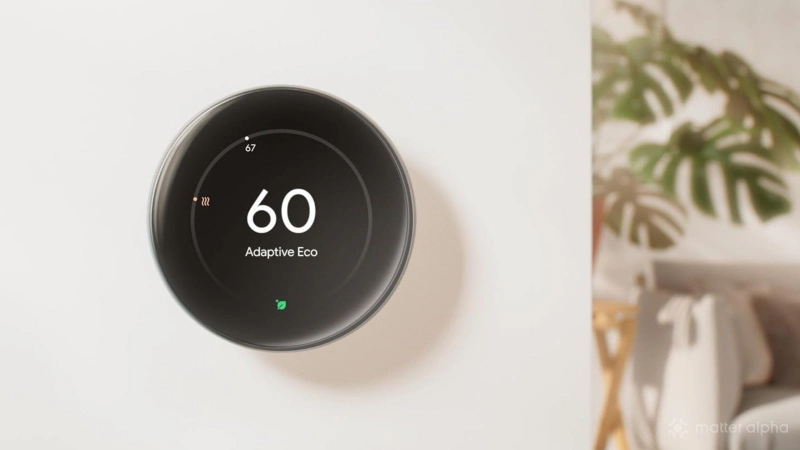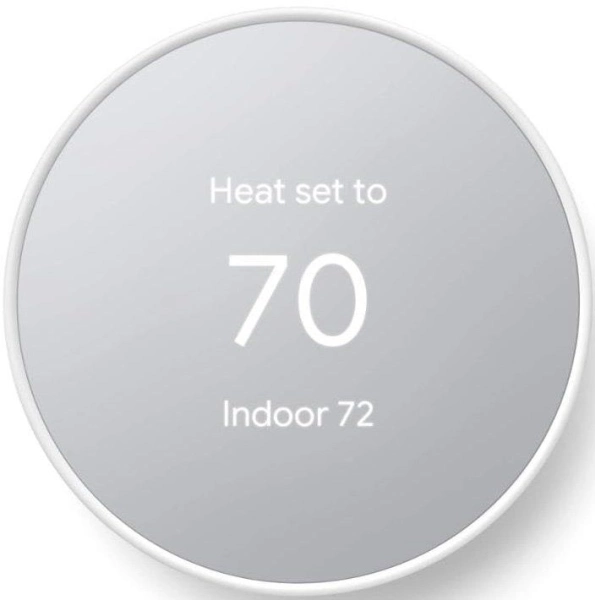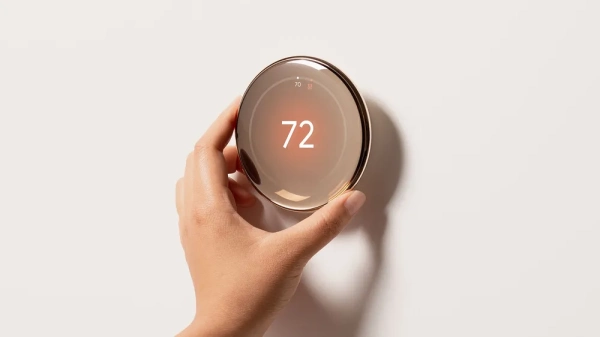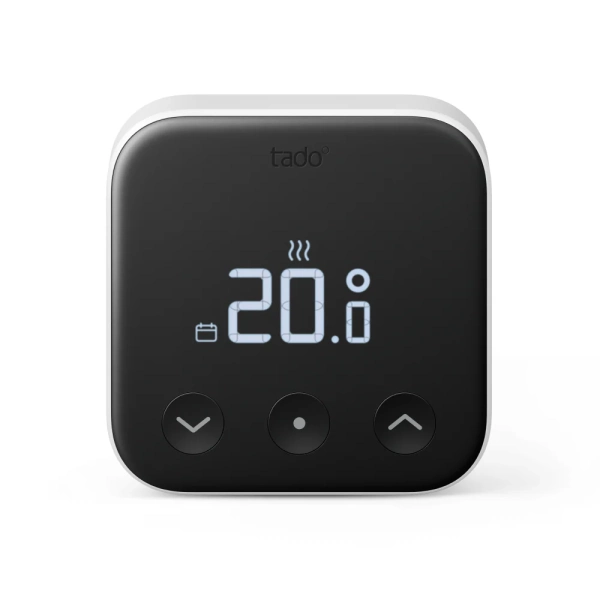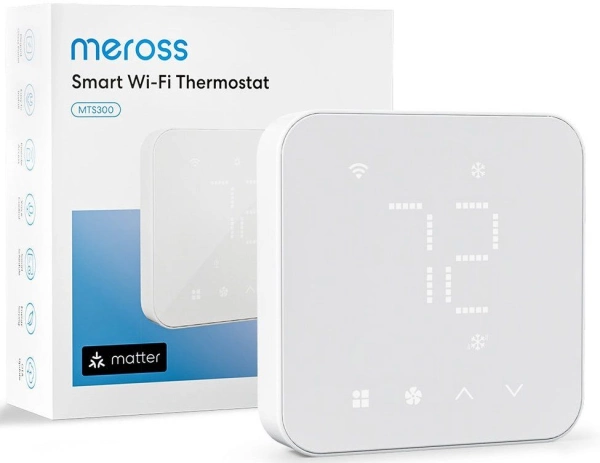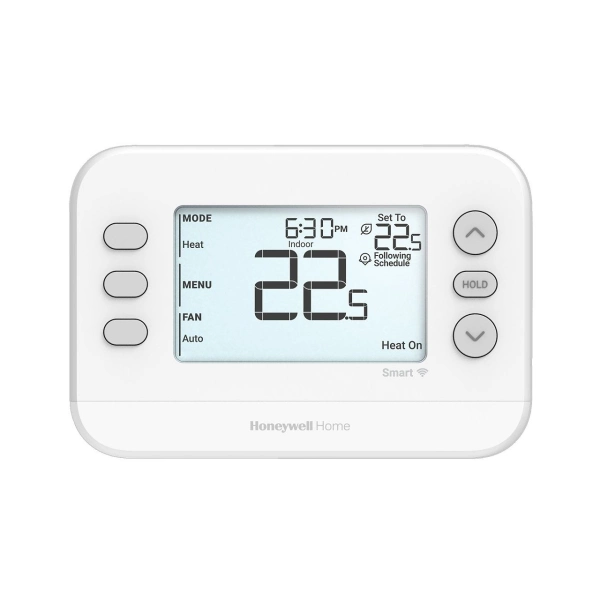The smart home environment is rapidly evolving, transforming our living spaces into places of convenience and efficiency. One key aspect is creating a comfortable and energy-saving environment, and Matter-compatible thermostats are poised to be game-changers in this arena.
But before diving into specific models, let's delve deeper into the advantages and disadvantages of these innovative devices, and explore why you might want to consider jumping into Matter.
The advantages of Matter-compatible thermostats

Matter acts as a universal language that allows devices from different brands and platforms to seamlessly communicate and work together. This translates into three specific key benefits for you.
Interoperability
No more wrestling with compatibility headaches. Matter devices, including thermostats, effortlessly connect and function flawlessly with various smart home platforms like Google Home, Amazon Alexa, Samsung SmartThings, Home Assistant, and Apple Home.
This eliminates the need for multiple apps and simplifies your smart home experience.
Enhanced security
As security concerns remain a constant worry in the connected world, Matter prioritizes secure security features. These features protect your data from unauthorized access and ensure your smart thermostat operates within a secure framework, safeguarding your home's comfort and peace of mind.
Future-proofing your smart home
Choosing a Matter-compatible thermostat is an investment in your future smart home. As the Matter standard gains traction, you'll be ready to embrace new and innovative devices seamlessly, ensuring long-term compatibility and adaptability within your evolving smart ecosystem.
Matter-compatible thermostats: the potential downsides
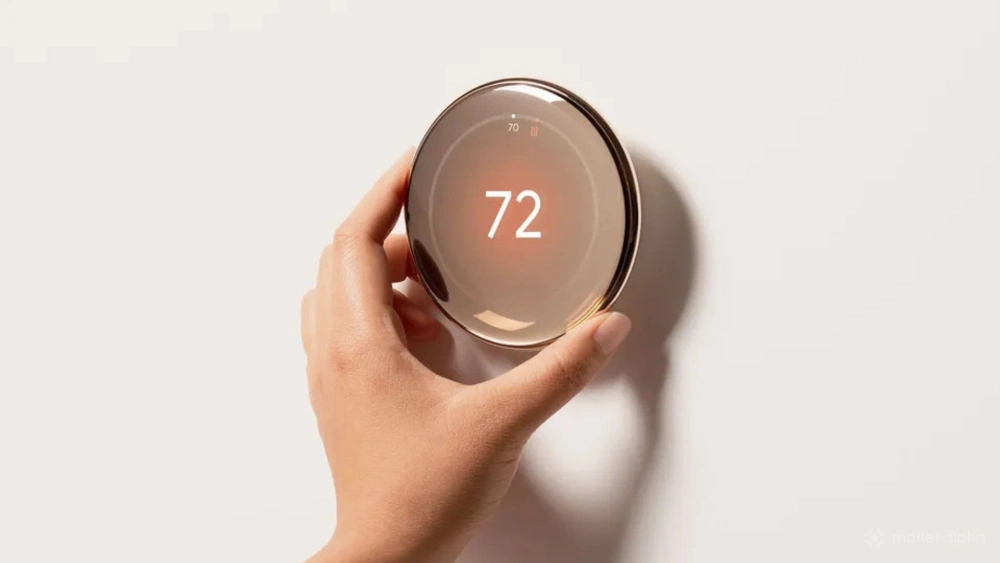
While Matter holds immense promise, it's important to acknowledge the couple of potential drawbacks. Nothing bad, but still worth taking into account.
Limited choice
As Matter is still relatively new, the current selection of compatible devices, including thermostats, is limited compared to established platforms. But as Matter continues to gain momentum, and customer demand increases, more vendors will eventually realize that the future lies with Matter, and they will have to jump on board to stay ahead.
Learning curve ahead
Shifting to a new smart home ecosystem might require some initial setup and familiarization, especially if you're already invested in a different platform like Amazon's Alexa. Understanding the new platform and its functionalities might involve a learning curve.
With Matter, it's not too much of a curve as it prides itself on setup simplicity. But still, it will take some time for you to become familiar and comfortable with your new setup.
The top 5 Matter-compatible thermostats
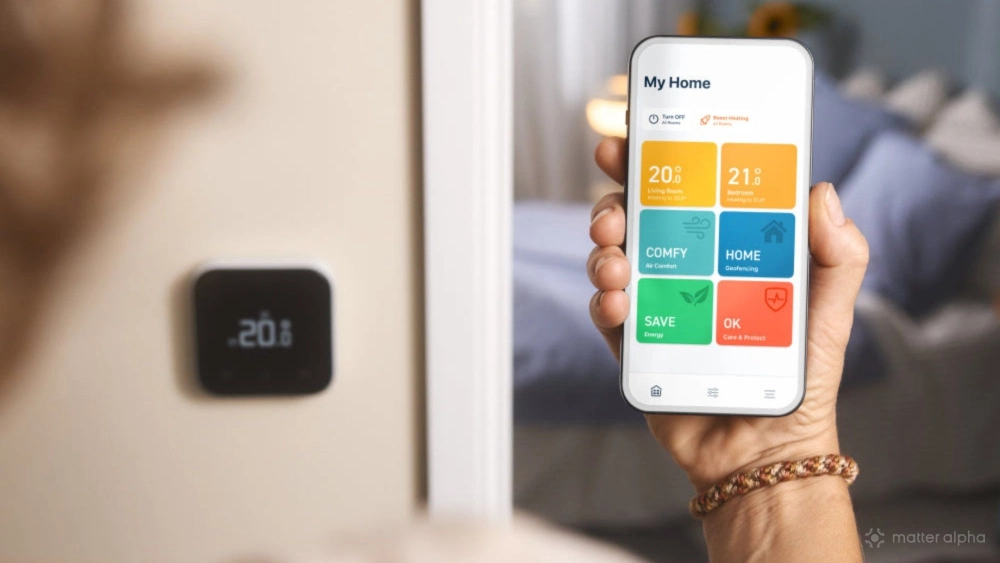
When selecting your Matter-compatible thermostat, consider these three factors which will influence your buying decisions.
- Budget: Prices range significantly from budget-friendly options to feature-rich models.
- Features: Do you prioritize a touchscreen display, room sensors, or advanced scheduling through learning features.
- Compatibility: Some thermostats only support specific types of systems. Pay close attention to compatibility—especially if your HVAC system includes ventilation features.
With these in mind, it's now time to turn to our picks for the best Matter-compatible thermostats.
Nest Thermostat (2020)
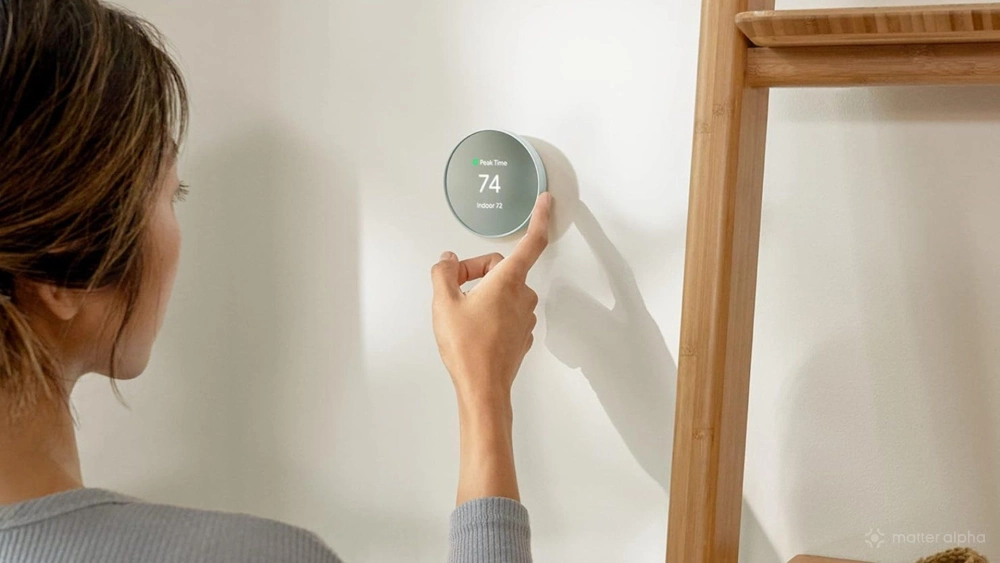
The entry-level 2020 model Nest Thermostat from Google holds the distinction of being the first-ever Matter-certified thermostat. This thermostat boasts a sleek, modern design with a mirrored display and simple installation, making it a breeze to integrate into your smart home.
Google Nest Thermostat
Best Price
The Nest Thermostat seamlessly integrates with Matter, allowing you to control temperature and access smart home features through app and voice commands. While it doesn't support learning features, the Google Home app will provide helpful suggestions designed to help you save energy.
Nest Learning Thermostat (4th Generation)
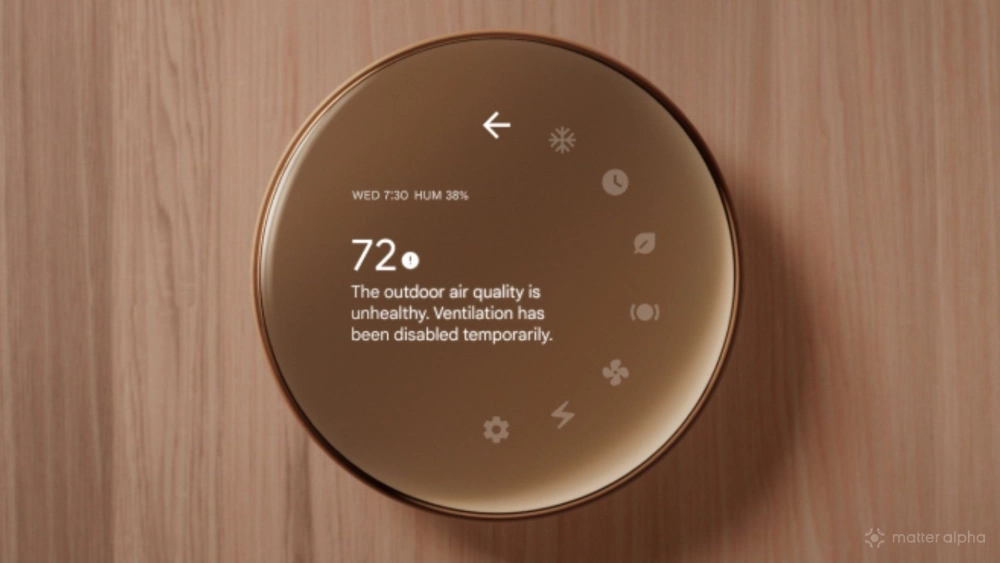
Google's flagship option—the Nest Learning Thermostat 4th Generation—is packed full of bells and whistles to help you effortlessly manage your home's heating and cooling. First and foremost, the Nest Learning sports a large 3.9-inch display and polished stainless steel frame that looks absolutely stunning on the wall.
Nest Learning Thermostat 4th gen
Best Price
As its name suggests, the 4th-generation Nest thermostat features learning capabilities that take your household's routines and activities to build a comprehensive schedule automatically. Google's thermostat also includes a remote room sensor that allows it to use the temperature of the room that is most important to you, and not just where it is installed.
Tado Wired Smart Thermostat X
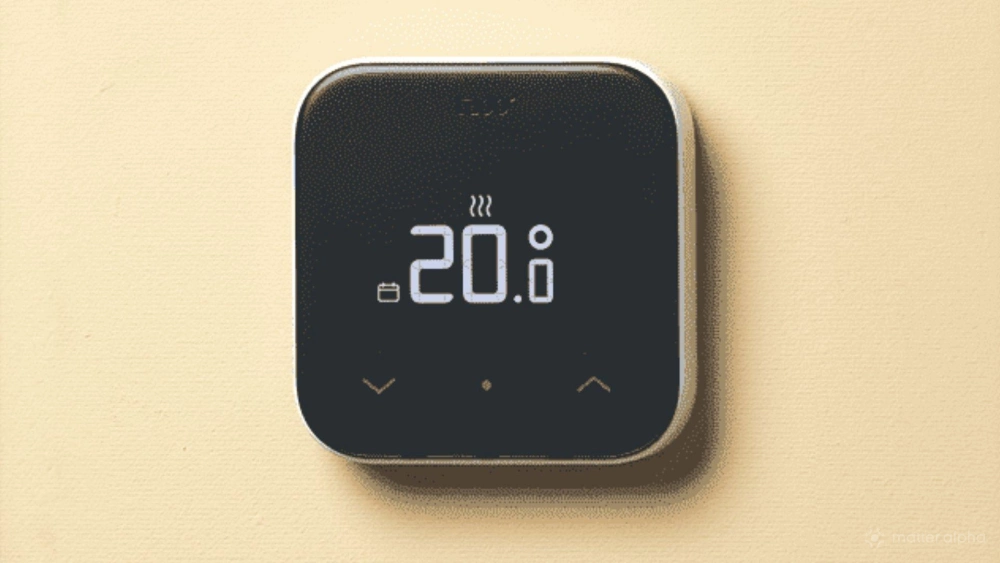
If you live in European markets and your home has a boiler, heat pump, or underfloor heating, then the Tado Wired Smart Thermostat X is the one for you. Alongside smart voice and app controls, this thermostat offers quick and easy adjustments via its backlit LCD and physical on-device buttons.
Smart Thermostat X
Tado's thermostat features Matter-over-Thread connectivity, allowing it to function without a dedicated hub if you already have a Border Router. Like Matter, Thread is a future-proof technology that allows you to expand your smart home without having to worry about being tied down to one specific vendor or platform.
meross MTS300MA Smart Wi-Fi Thermostat
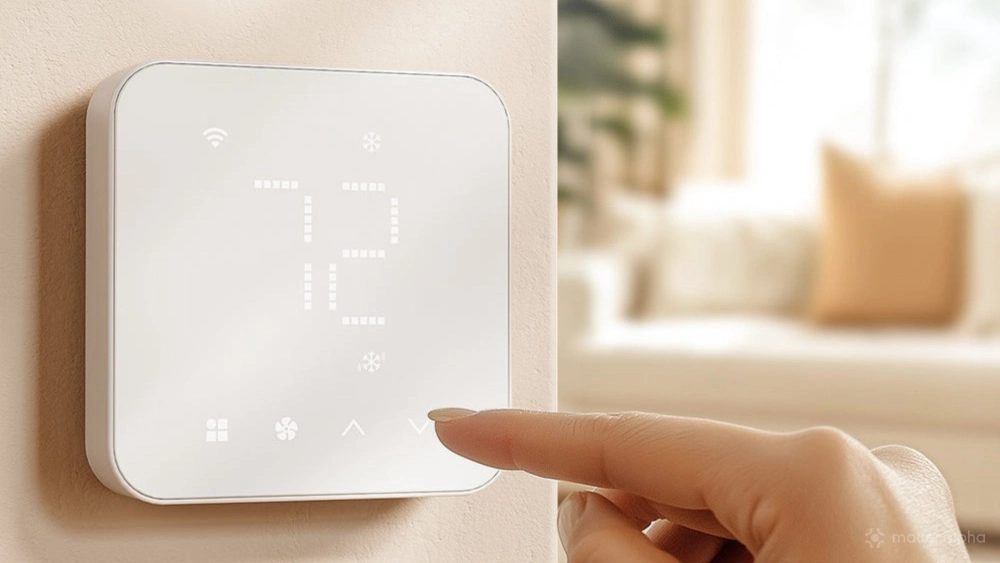
Available in black and white glass finishes, the meross MTS300MA Smart Wi-Fi Thermostat currently holds the crown as being the most affordable Matter-compatible option today. Coupled with estimated energy savings of up to 30% when using its built-in scheduling features, this thermostat will pay for itself in a matter of months—pun intended.
Meross MTS300 Smart Thermostat
Best Price
Despite its wallet-friendly price, the MTS300MA still boasts compatibility with 95% of heating and cooling systems, including furnaces, boilers, air conditioners, and heat pumps. The only downside is that meross doesn't include the required C-Wire adapter in the box, so those with older systems will need to purchase it separately before getting it connected to Matter.
Honeywell Home Smart X2S Thermostat
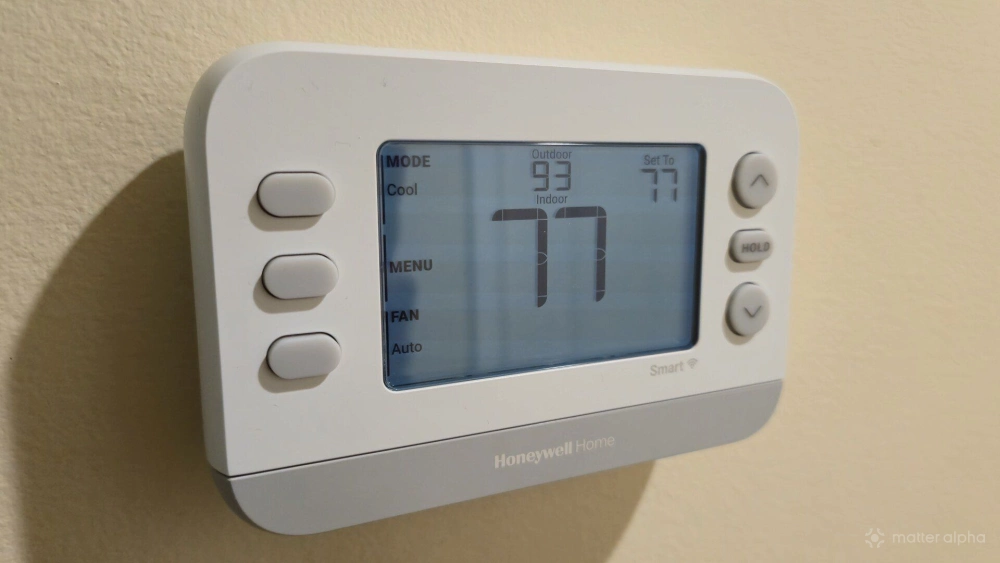
In our hands-on review of the Honeywell Home Smart X2S Thermostat, we lauded it for nailing the traditional thermostat experience. Honeywell's thermostat has large, raised physical buttons for adjustments and navigation, and its unassuming monochromatic display allows it to blend with most decor quietly in the background.
FocusPro S200 / X2S Smart Thermostat
Best Price
Also available at
As with other Matter-compatible thermostats, installing and connecting the X2S to your smart home happens over Wi-Fi, all facilitated through the Resideo app. Once up and running, you can link it to Matter via a QR pairing code generated in the app—so you won't need to worry about losing that all-important code.
The Matter future: thermostats and beyond
Matter isn't just about thermostats. It's a technology poised to revolutionize the entire smart home landscape. As Matter adoption grows, expect to see a wider range of compatible devices emerge, encompassing everything from light bulbs and plugs to smart kitchen appliances and entertainment devices.
For a complete breakdown of two of the best Matter-compatible smart thermostats on the market today be sure to check out or our guide: Nest Thermostat vs Nest Learning Thermostat. We also have a guide to the best Matter-compatible radiator valves for those relying on room-based heating for their homes.
